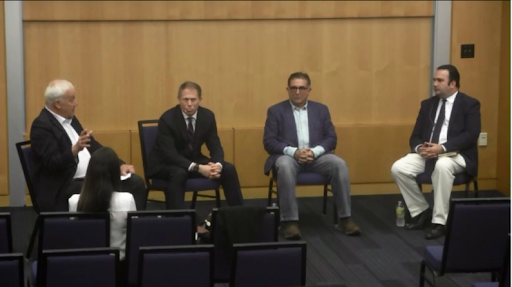Diego Diaz / Assistant News Director
After a year defined by massive inflation, COVID-19 outbreaks, protest and the subsequent crackdown, FIU experts and Cuban activists met to discuss the future of the island nation.
The June 1 panel, hosted by FIU’s Václav Havel Program for Human Rights & Diplomacy’s Cuba initiative, focused on hypothetical legal reforms needed to transition the country from the current one party system to a representative democracy.
Panelists spoke about the impact of the July 11, 2021 anti-government protest, when hundreds filled the streets of Cuba in the largest display of anti-government sentiment since the1990s.
“I think, what happened in Cuba after the July 11 protest, is that the old pact between the Cuban people and the communist regime in Cuba were broken, and there is a new constitution on the streets of Cuba: freedom and no more communism” said Santiago Alpizar, attorney at law and co-founder of CubaDemanda, a Miami-based law firm that legally supports anti-communist activists within and outside the island.
Martin Palouš, moderator and director of FIU’s Václav Havel Program, agreed with Alpizar. However, he also considered the legal steps needed for a democratic transition in Cuba, drawing parallels to his home country of Czechoslovakia’s own democratic transition.
“So what you first need to say, which laws are still staying in place – you are not starting from zero, you are starting some legal process with the view of this discontinuity,” Palouš. “ The first thing legally that happened [in Czechoslovakia] were the two articles removed from the Constitution, revoking the leading role of the Communist Party, but besides that, all laws were in power.”
Speaking about this pathway to democracy, Daniel Pedreira, FIU Political Science doctoral candidate, questioned the social impact of retaining a constitution originally written by the Comunist party.
“When the Nazis came into Germany, they changed everything to become a Nazi state and then when the United States came in and the Marshall Plan started, and they made sure that there was a mindset that this regime was eradicated, it was gone,” said Pedreira. “ So if you’re still using the legal document that was created by the Communist Party, there might be some… confusion, there might be some feelings, that we’re still using the legal treatise that was created by the regime that oppressed us that we’ve now eradicated.”


Be the first to comment on "FIU Hosts Cuba Panel Discussing Possible Legal Paths to a Democratic Cuba"